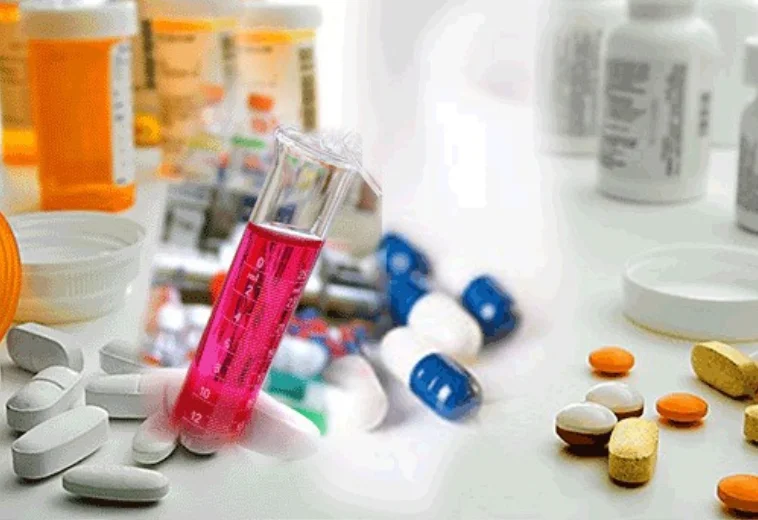Introduction
Active pharma ingredients manufacturers are essential to the pharmaceutical industry because they create the crucial elements that give medications their effectiveness.
The compounds in medications that give them their therapeutic benefits are called active pharmaceutical ingredients, or APIs. Drugs wouldn’t work as intended without high-quality APIs, which is why reliable producers are essential.
Since APIs make up half of the medicine itself, they play a significant role in the pharmaceutical production industry. Working in the pharmaceutical manufacturing industry requires a very thorough understanding of the APIs and their significance.
Understanding Active Pharmaceutical Ingredients (APIs)
The elements of a medicine that create a target effect are called the active pharmaceutical ingredient, or API. In other words, they are the chemicals that provide each medication’s therapeutic intent.
APIs are distinguishable from raw materials because they are the finished product that interacts with the actions of the body to treat disease. In simple terms, it can be said that APIs are the “active” ingredient in a drug.
The effect that an API has on a drug (i.e., pain reliever, antibiotic, life-saving drug) depends on the quality and potency of the API.
APIs are principally produced via complicated chemical and biological processes and are essential to the pharmaceutical world. Because China and India manufacture the majority of APIs, global pharmaceutical supply chain regulations actively ensure that drugs remain consistent, safe, and effective. The U.S. FDA, WHO, and GMP regulate API quality worldwide to protect drug safety.
The purity, potency, and quality of an API are critical. Since safety and efficacy can be influenced by even minor changes, active pharma ingredients manufacturers invest a lot of time and money into the systems responsible for quality assurance, research, and manufacturing.
In Medicine, Why Are Apis Important?
Active pharmaceutical ingredients (APIs) are the key substances used in contemporary medicines. APIs produce the therapeutic outcome that is needed to treat, mitigate, or prevent disease. Without an API in the drug (e.g., tablet, injection, etc.), any substance would be ineffectual because APIs are the active mix targeting particular diseases.
APIs are essential to drug development because APIs provide confidence and assurance that a drug will be efficacious without causing unwanted effects. There are many reasons to appreciate the value of the API, but there are several considerations, for example:
- Purified and well-characterized APIs reduce the potential for toxicity and side effects.
- Reproducible APIs ensure that there is a consistent potential and action in each batch of a given drug.
- Drug companies consider information such as dosage, purity, and bioavailability to ensure they are meeting standards in strict regulations.
Different Active Pharmaceutical Ingredient (API) Types
Researchers generally divide APIs into three categories: natural and herbal APIs, biologic APIs (biopharmaceuticals), and synthetic chemical APIs. In contemporary medicine, each kind has a distinct function as an active medicinal ingredient.
APIs for Synthetic Chemicals: The most often utilized APIs in the pharmaceutical industry are synthetic chemical APIs. Small molecules, commonly referred to as synthetic chemical APIs, make a significant portion of the pharmaceutical industry, with numerous small molecule medications now on the market.
Biopharmaceuticals, or biologic APIs, are made up of living things such as yeast, bacteria, or mammalian cells. Advanced biotechnology, including recombinant DNA technology and genetic engineering, is used in their production. Biologic APIs are very effective for complex diseases because they provide focused treatment options and excellent specificity.
Herbal and Natural APIs: Minerals, plants, and animals are the sources of natural and herbal APIs. For ages, traditional medical systems such as Ayurveda, Traditional Chinese Medicine (TCM), and Unani have employed them. Customers’ preference for plant-based and organic therapies is driving up demand for natural APIs.
How does the API production process work?
The process of making the APIs is arduous and also multi-faceted, which requires engineering work, chemistry work, and a complete quality oversight.
Manufacturers usually produce the APIs through several processes, like isolation, purification, and the chemical synthesis. Producers use different types of methods for each type of compound when making APIs.
Active pharma ingredients manufacturers typically follow several fundamental steps and principles:
- Raw Material Selection: Manufacturers source premium raw materials for chemical synthesis or biological processing.
- Chemical Synthesis or Fermentation: APIs are usually made by using biotechnology-based techniques like fermentation or genetic engineering, or by refined chemical reaction.
- Purification and Crystallization: This process eliminates all the impurities to achieve a pharmaceutical-grade purity.
- Drying and Milling: APIs are milled into fine powder to improve the solubility and the bioavailability.
- Quality Testing & Compliance: Analytical testing should be completed on the APIs to guarantee that it should meet the global regulatory specifications before release to pharmaceutical companies.
- The Final Product: After manufacturers produce the final product, such as a tablet or capsule, they conduct comprehensive quality checks before releasing it for patient use.
Regulatory Standards in API Manufacturing
Pharmaceutical companies are obligated to meet international standards for APIs. Some of them are:
FDA (U.S. Food & Drug Administration): All APIs manufactured must follow cGMP (Current Good Manufacturing Practices) in the manufacturing of APIs. Authorities periodically inspect all manufacturing facilities.
WHO (World Health Organization): It verifies that APIs are safe and effective and conform to international health standards. WHO prequalification is mandatory for any company selling to API in the global marketplace.
Good Manufacturing Practice (GMP) is an internationally recognized standard which follows policies and procedures, including the clean environment for API production, process verification, and the stringent quality control with established limits to prevent any kind of contamination and also ensures consistent product quality.
Regulatory compliance ensures patient protection, provides confidence and credibility for active pharma ingredients manufacturers, and improves access to the international market.
Conclusion
As biotechnology and sustainable manufacturing advance, the Active Pharmaceutical Ingredient (API) market is changing very quickly. A significant trend involves moving toward personalized medicine, where manufacturers customize APIs to a patient’s genetic profile for more effective therapies. Active pharmaceutical ingredients serve as the core of modern medicines, playing a crucial role in determining a drug’s quality, safety, and effectiveness.
Active pharma ingredients manufacturers play a very crucial role in this type of ecosystem. Pharmaceutical businesses rely on the experience to produce pure, stable APIs ready for formulation into life-saving drugs.
The reputable active pharma ingredients manufacturers will become more crucial as the demand grows for high-quality medications worldwide.










 /home/u448362301/domains/theexpotab.com/public_html/wp-content/themes/foxiz/templates/popup.php on line 167
/home/u448362301/domains/theexpotab.com/public_html/wp-content/themes/foxiz/templates/popup.php on line 167